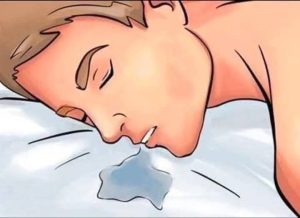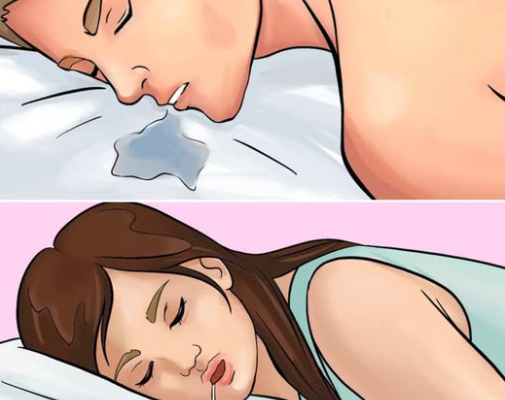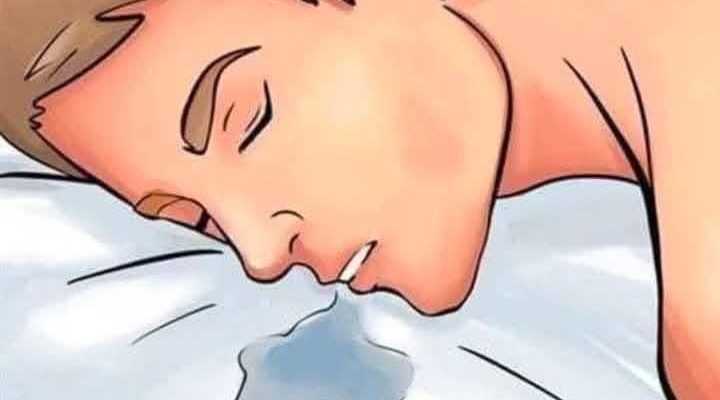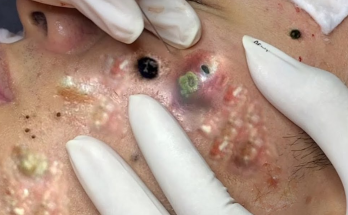If you drool while sleeping, it is a sign that your brain…see more
If you drool while sleeping, it is a sign that your brain…see more

If You Drool While Sleeping, It Is a Sign That Your Brain… (Surprising Facts You Need to Know!)
Drooling in your sleep is something that many people experience but rarely talk about. If you’ve ever woken up to a wet pillow, you might have wondered—why does this happen? Is it normal, or is it a sign of something serious? The answer might surprise you!
In this post, we’ll dive deep into the science behind drooling while sleeping, what it reveals about your brain, and when you should be concerned.
What Is Drooling in Sleep?
Drooling, also known as sialorrhea, is the unintentional flow of saliva from the mouth. It’s common in babies and toddlers who haven’t fully developed their swallowing reflexes, but many adults experience it too.
The body produces saliva throughout the day to aid digestion, protect the teeth, and keep the mouth moist. Normally, we swallow saliva automatically. However, during sleep, our swallowing reflex slows down, and if the mouth is slightly open, saliva can escape.
Why Do People Drool in Their Sleep?
Several factors can cause or contribute to drooling at night. Here are the most common ones:
1. Deep Sleep and Relaxation
If you drool while sleeping, it might mean that you’re experiencing deep sleep or REM (rapid eye movement) sleep. This is a good thing! Deep sleep is essential for brain function, memory consolidation, and body repair.
During deep sleep, your muscles relax completely—including the muscles in your mouth. If you sleep with your mouth slightly open, saliva may escape.
What This Means: If you wake up with a drool-stained pillow, it could be a sign that you’re sleeping well and entering the deepest, most restorative sleep stages.
2. Sleeping Position
Your sleeping posture plays a big role in drooling. People who sleep on their side or stomach are more likely to drool than those who sleep on their back.
Why? Because gravity pulls the saliva downward and out of your mouth when you sleep on your side or stomach.
What This Means: If you want to reduce drooling, try sleeping on your back with a supportive pillow.
3. Nasal Congestion and Allergies
If you have a stuffy nose due to allergies, a cold, or sinus issues, you may breathe through your mouth while sleeping. This increases the chances of drooling since the mouth remains open.
What This Means: If you have frequent nasal congestion, treating the underlying cause can help reduce drooling.
4. Neurological Conditions
Certain neurological conditions, such as Parkinson’s disease, stroke, and cerebral palsy, can affect the muscles that control swallowing, leading to excessive drooling.
What This Means: If you experience frequent and severe drooling along with other neurological symptoms, consult a doctor.
5. Acid Reflux (GERD)
Gastroesophageal reflux disease (GERD) can trigger excessive saliva production. When stomach acid flows back into the esophagus, the body tries to neutralize it by producing more saliva.
What This Means: If you have heartburn, frequent burping, or throat irritation, GERD might be the reason behind your nighttime drooling.
6. Medications and Side Effects
Some medications, particularly those used for mental health conditions, Parkinson’s disease, or allergies, can increase saliva production or affect muscle control, leading to drooling.




